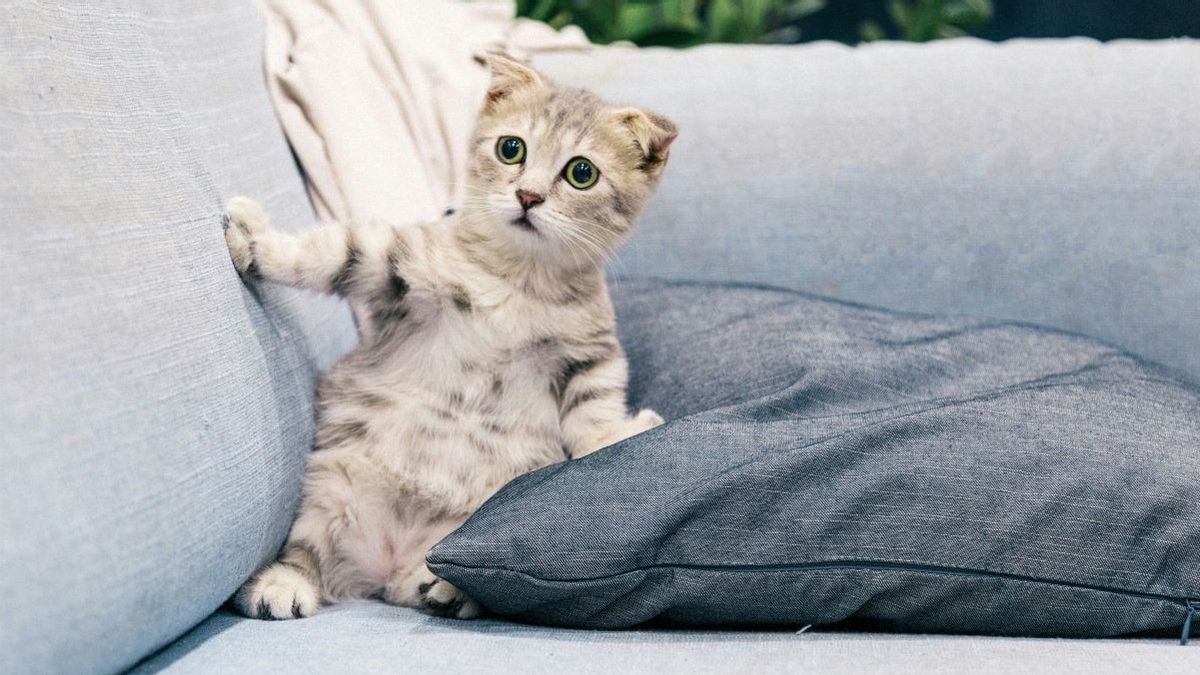YOGYAKARTA - Cats are sensitive creatures, so it makes sense if they also experience depression under certain conditions. There are several characteristics and symptoms that could indicate a symbol of a cat being depressed.
If your cat no longer welcomes you with great enthusiasm at the front door, a little meowing,
sniffing his nose into his cat bowl and not eating at all or changing his other attitude, there could be a reason behind it.
To overcome the change in the attitude of cats that are not as cheerful as usual, look at some tips so that cats are not depressed that you can apply to your favorite cat friends at home.
1. Eating patterns Change
If your cat stops eating or you see a sudden change in appetite, he may not be happy with something. A sad cat may reject the meal they previously enjoyed. Especially when the cat's mental pressure can run out of interest in her favorite food.
2. Characteristics Of Menging Change
Mengong is a typical cat characteristic. There are cats that are happy to meow or laugh, there are also those that tend to be rare.
When depressed, this behavior will change. Cats may outdo more or less than generally. These unpleasant voices are generally low-pitched, sad.
EARing doesn't always show happiness, and unhappy cats can slit more as a way to entertain themselves. Other cats that generally sound may become quiet, while quiet cats can increase their volume.
3. Often Climbing
Depressive cats often look for a new place to climb which helps them feel more under control. Launching Your Pet & you, cats climbing too much can damage goods and endanger the cat.
Should create a safe area for cats, so they feel more comfortable and safe.
4. Peluang Uluang Sembarangan
If a cat defecates in a place other than its impurity box, this could be a characteristic of the underlying medical problems, situational problems, or cat depression. Quoting Readers Digest, it means a lot to you guys to react in a positive way.
Don't scold the cat, but give love and tell them slowly so that they return to their disposal box when defecating.
5. Damaged Goods
When a cat starts petting, chewing, and destroying furniture, windowing, and other objects in the house they haven't had time to touch before, it can be a characteristic of mental stress.
1. Implement Routine Care
When owners give them timely meals, brush them as usual, and share gentle attention, this convinces cats not to feel sad. Let's obey the cat care schedule to take time to tease and caress the cat.
2. Mental stimulation
Humans or cats need to get rid of boredom so they don't think much about things and sink into a sad mood. Fill the mind of your cat with lots of mental stimulation. Encourage cats to express normal attitudes such as finding or pounceing. This method relieves the frustration felt by the cat.
Play: Take 5-10 minutes a few times a day, engage your cat in the game.
Shelter: Cats like to be in high places. Provide a high perch near the window so they can climb and see the outside world.
Cat Cooking Poles: Provide a strong cat claw pole next to the bed and its door. Sneering is an attitude that marks the region and helps the cat You feel more comfortable.
SEE ALSO:
3. Short-Term Treatment
If the cat is sad and refuses to eat or interact, then treatment can be needed in the short term. Consult with the veterinarian about what medicine is the most appropriate for pets.
Not only prescription drugs, you can try: Feliway or Zylkene which are food supplements, comes from protein milk, which works on the brain with natural anti-depressant effects.
In addition, read also: 'Recognizing the Cause of Fatigue in Cats' so that you can immediately take quick steps.
So after learning that the cat is depressed, look at other interesting news on VOI.ID, it's time to revolutionize news!
The English, Chinese, Japanese, Arabic, and French versions are automatically generated by the AI. So there may still be inaccuracies in translating, please always see Indonesian as our main language. (system supported by DigitalSiber.id)


















